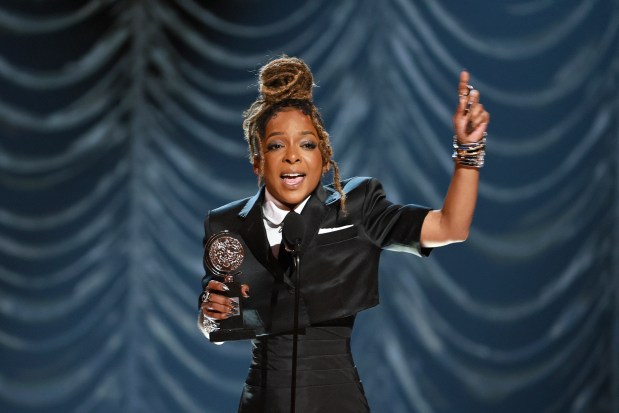NEW YORK — New York prosecutors are using a 9/11-era anti-terrorism law in their case against the man charged with gunning down UnitedHealthcare’s CEO outside a midtown Manhattan hotel.
Luigi Mangione was indicted on charges of murder as an act of terrorism, under a state law that allows for stiffer sentences when a killing is aimed at terrifying civilians or influencing government.
If it sounds like an unusual application of a terrorism law, it’s not the first time the statute has been applied to a case that wasn’t about cross-border extremism or a plot to kill masses of people.
Mangione is jailed on other charges in Pennsylvania, where he is scheduled to appear at an extradition hearing Thursday that could clear the way for him to be brought to New York.
Here are some things to know about the anti-terrorism law and the case surrounding the death of Brian Thompson.
What does the law say?
Mangione is charged with first-degree and second-degree murder counts that specifically refer to a New York law that addresses terrorism. Essentially an add-on to existing criminal statutes, it says that an underlying offense constitutes “a crime of terrorism” if it’s done “with intent to intimidate or coerce a civilian population, influence the policy of a unit of government by intimidation or coercion or affect the conduct of a unit of government by murder, assassination or kidnapping.”
What does it do?
If a defendant is convicted, the “crime of terrorism” designation boosts the underlying offense into a more serious sentencing category. For example, an assault normally punishable by up to 25 years in prison would carry a potential life sentence.
Mangione would face a possible life sentence if convicted.
New York does not have the death penalty. The state’s highest court threw out a capital punishment law in 2004.
Why do prosecutors say the anti-terrorism law applies in UnitedHealthcare CEO Brian Thompson’s killing?
Manhattan District Attorney Alvin Bragg put it simply: “The intent was to sow terror.” The Democratic prosecutor noted that the shooting unfolded early on a workday in a heavily trafficked business and tourist area, and he mentioned Mangione’s writings, while declining to get more specific.
When arrested, the 26-year-old was carrying a handwritten letter that called health insurance companies “parasitic” and complained about corporate greed, according to a law enforcement bulletin obtained by The Associated Press.
New York Police Commissioner Jessica Tisch has said Mangione also was carrying a gun that matched shell casings at the crime scene. Investigators say ammunition found near Thompson’s body bore the words “delay,” “deny” and “depose,” mimicking a phrase some people use to decry insurers’ practices.
Deputy Commissioner Rebecca Weiner said the reaction to Thompson’s killing shows it fits within a law against violence designed to intimidate a civilian population.
The shooting prompted a wave of public criticism of the health insurance industry. Much of it is people sharing stories and frustration, but there also have been “wanted” posters targeting other health care honchos. Concerned companies have taken top executives’ biographies offline, canceled in-person shareholder meetings and even told employees to work from home temporarily.
What does Mangione’s side say?
His New York attorney, Karen Friedman Agnifilo, called the case “overcharged” in a statement Wednesday. The term is courthouse lingo for saying that prosecutors went too far.
Where did this law come from?
State lawmakers passed it in 2001, six days after the Sept. 11 attacks, saying the state needed “legislation that is specifically designed to combat the evils of terrorism” and that wasn’t just for federal courts. Then-state Sen. Michael Balboni, who was among the law’s leading proponents, recalls pointing out that many cases could come via state and local law enforcement officers, who far outnumbered federal agents in New York.
Many other states passed similar laws around the same time, and Congress approved the Patriot Act.
Has New York’s anti-terror law been used before?
There’s no comprehensive count of cases where the anti-terrorism statute was used, because it can be layered onto many different types of charges, from weapons possession to murder.
The specific first-degree murder “in furtherance of an act of terrorism” charge against Mangione has been the top count in only three other cases statewide, according to the Division of Criminal Justice Services.
In New York City alone, over a half-dozen cases of various sorts have used the terror law, starting with the 2004 indictment of a Bronx gang member. He was accused of killing a 10-year-old girl and paralyzing a man at a christening party.
Manhattan prosecutors got convictions or guilty pleas in cases including plots to bomb synagogues or open fire on their congregants; a plan to build pipe bombs to try to undermine public support for the U.S. wars in Iraq and Afghanistan; alleged efforts to recruit support for the Islamic State group and to provide money and knives to Syrian extremists; and a white supremacist who killed a Black man because of racial hatred.
Friedman Agnifilo was a top deputy to Bragg’s predecessor, Cyrus Vance Jr., when some of those cases were prosecuted.
Are there limits on when the terror law applies?
Lawmakers set the parameters broadly. The law doesn’t say that cases have to involve mass casualties or international extremism, Balboni said in a telephone interview on Wednesday.
“You’re trying to prevent individuals in this country who want to change government and use extremism and violence to that end,” whether what they want to change is foreign policy or health care industry regulation, said.
Courts haven’t set out overarching rules for when a case qualifies. However, the state’s top court said the Bronx gang member’s case did not.
The high court overturned his conviction. Justices were skeptical that the shooting — allegedly targeting a rival gang member — was meant to intimidate the broader community. They also worried that the meaning of terrorism could be trivialized if “applied loosely in situations that do not match our collective understanding of what constitutes a terrorist act.”
The man, who denied involvement in the shooting, was retried on manslaughter and other charges. He was convicted and sentenced to 50 years in prison.
Is Mangione charged with anything else?
Yes. The indictment includes another second-degree murder charge that doesn’t have the terrorism allegation, as well as eight weapons-possession counts.




